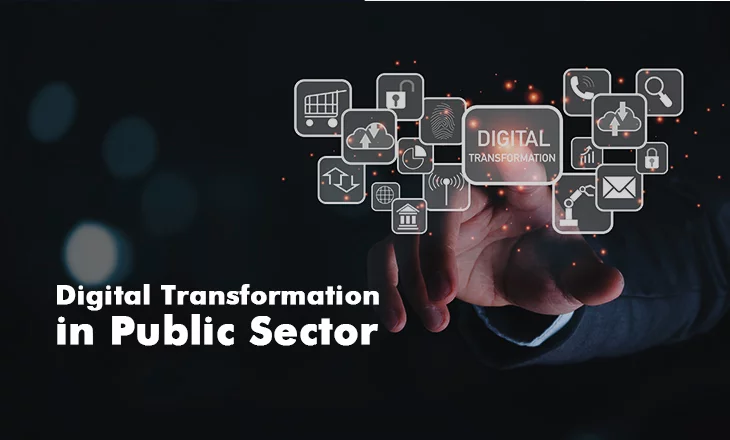Introduction to Digital Transformation in Gulf Administration
Digital transformation has become the heartbeat of modern governance in the Gulf region. Over the past decade, public administrations in countries like the UAE, Saudi Arabia, Qatar, and Oman have embraced digital innovation to enhance efficiency, transparency, and citizen engagement. This transformation is not merely about adopting new technologies it is about reshaping the entire public service ecosystem to meet the evolving needs of society.
Governments in the Gulf are now leveraging smart technologies to streamline processes, reduce bureaucratic hurdles, and deliver faster, more effective services to residents and businesses alike. The emphasis is on creating intelligent systems that anticipate the needs of the people and provide solutions proactively.
Key Drivers of Digital Transformation
Several factors have accelerated digital transformation in Gulf public administration. One major driver is the increasing demand for efficient services from citizens and businesses. People expect quick, reliable, and transparent interactions with government authorities, much like their experiences in the private sector.
Another driver is economic diversification. Gulf nations, traditionally reliant on oil revenues, are investing heavily in digital infrastructure to build knowledge-based economies. Smart governance forms a crucial part of this vision, enabling these countries to maintain competitiveness on a global scale.
Furthermore, the adoption of cutting-edge technologies such as artificial intelligence, blockchain, and cloud computing has opened new avenues for improving administrative efficiency. These tools allow governments to analyze vast amounts of data, automate routine tasks, and make informed policy decisions.
Transforming Public Services Through Digital Platforms
One of the most visible impacts of digital transformation in the Gulf is the shift toward comprehensive e-government platforms. Online portals now allow citizens to access a wide array of services, from applying for permits to paying bills, all without physically visiting government offices.
For instance, mobile applications and web-based portals have simplified processes for both citizens and expatriates, enabling them to complete transactions in minutes. This not only saves time but also minimizes errors and enhances accountability.
Digital platforms also support personalized citizen experiences. Governments can use data analytics to understand individual needs, tailor services, and ensure that feedback loops improve the quality of service delivery.
Smart Cities and Integrated Administration
Digital transformation goes beyond administrative processes it extends into urban planning and management. Gulf nations are investing in smart city initiatives that integrate digital technologies across transportation, utilities, healthcare, and public safety systems.
These smart cities rely on interconnected networks of sensors and data platforms to monitor and manage resources efficiently. Public administrations use this data to optimize traffic flows, reduce energy consumption, and ensure the safety and well-being of residents.
Such integration strengthens governance by providing real-time insights that inform strategic decisions, allowing governments to act swiftly and decisively.

Enhancing Transparency and Accountability
One of the most significant benefits of digital transformation in public administration is enhanced transparency. Digital platforms create clear records of government transactions, making it easier to track processes and hold authorities accountable.
Blockchain technology, for instance, is being explored to secure records of public contracts and land transactions, reducing fraud and corruption. By ensuring that every action is traceable and verifiable, governments build public trust and foster confidence in their institutions.
Moreover, transparency encourages citizen engagement. When people can access information about government operations and performance, they are more likely to participate in civic activities and contribute positively to policy development.
Workforce Transformation in Public Administration
Digital transformation also requires rethinking the role of government employees. Public administrations are investing in training programs to equip staff with the skills needed to manage and operate advanced digital systems.
Employees are increasingly being trained in data analysis, cybersecurity, and digital service design. This upskilling ensures that the workforce can effectively leverage technology to serve citizens better.
The shift toward a digital-first mindset also encourages innovation within government departments. Employees are empowered to propose new solutions, experiment with digital tools, and improve service delivery continuously.
Challenges in Implementing Digital Transformation
Despite the significant progress, implementing digital transformation in Gulf public administration is not without challenges. One major obstacle is the need for robust cybersecurity measures. As governments store and process sensitive information digitally, protecting this data from cyber threats is critical.
Additionally, the pace of technological change can create gaps in skills and infrastructure. Governments must ensure continuous training for employees and invest in scalable, future-ready systems.
Another challenge is managing public expectations. While digital platforms promise convenience, citizens may encounter technical issues or experience resistance to adopting new technologies. Effective communication and support systems are crucial to overcome these barriers.
Collaboration and Regional Integration
Gulf countries are increasingly collaborating to share best practices and develop standardized digital solutions. Regional integration enables governments to learn from each other’s experiences and implement more efficient systems.
Joint initiatives also enhance cross-border services for businesses and residents, such as unified visa systems, trade facilitation platforms, and health data interoperability. Such cooperation strengthens governance while creating a seamless experience for stakeholders.

Future Outlook of Digital Transformation
The future of digital transformation in Gulf public administration is bright. Governments are exploring emerging technologies like artificial intelligence, the Internet of Things, and predictive analytics to further improve services.
AI-driven decision-making will allow administrations to anticipate challenges and optimize policies, while IoT-enabled smart infrastructure will support sustainable urban development. These innovations promise to make Gulf public administration more responsive, efficient, and citizen-centric than ever before.
The focus will increasingly shift toward creating holistic ecosystems where digital governance, smart cities, and citizen engagement converge. This will redefine the relationship between the state and its people, making governance more inclusive and dynamic.
Citizen-Centric Governance Through Digital Innovation
At its core, digital transformation is about people. Gulf public administrations are embracing a citizen-centric approach, ensuring that services are designed around the needs and preferences of the population.
Personalized experiences, proactive communication, and accessible digital services make citizens feel valued and empowered. When people can interact seamlessly with government systems, it strengthens social trust and encourages collaboration between the public and the state.
Conclusion
Digital transformation in Gulf public administration is reshaping the way governments operate, interact with citizens, and deliver services. By leveraging technology, Gulf nations are building efficient, transparent, and responsive governance systems that meet the demands of a modern, knowledge-driven society.
While challenges remain, the commitment to innovation, collaboration, and citizen-centric governance ensures that Gulf public administrations are not only keeping pace with global trends but also setting new standards for excellence in public service. The ongoing transformation is a testament to the region’s vision for a digitally empowered future, where governments and citizens thrive together.
Do follow Gulf Magazine on Instagram.
Also Read – Revolutionizing Gulf Water Supply Through Innovative Renewable Desalination



